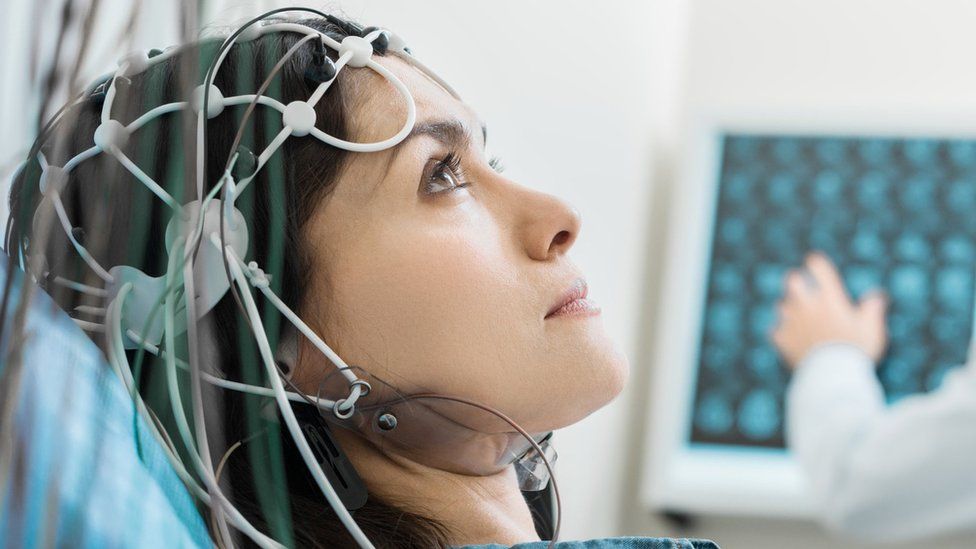ARTICLE AD BOX
By James Gallagher
Health and science correspondent
 Image source, Getty Images
Image source, Getty Images
Scientists have discovered they can boost people's memory for a least a month by harmlessly stimulating parts of the brain with electricity.
Volunteers performed better at word memorisation games, which tested both their immediate "working" memory and their long-term memory, experts found.
Exactly what the results mean for day-to-day life is still unclear.
But ideas range from helping old people cope with memory decline, to treating disease and aiding exam preparation.
Dr Robert Reinhart, from Boston University, described the stimulation technique as "an entirely different approach to isolating and augmenting parts of the brain" which offered "an entirely new realm of potential treatment options".
People on the trial wore a cap filled with electrodes. A controlled electrical current, which feels similar to an itch or a tingle, was then used to precisely alter brainwaves in targeted regions of the brain.
The volunteers underwent 20 minutes of stimulation daily for four days in a row. Throughout the study they had to memorise lists of words, which they were again asked to recall one month later.
Dr Reinhart said the treatment "could cause selective memory improvement that lasts for at least one month".
The results, published in the journal Nature Neuroscience, showed those volunteers who were struggling with the memory games at the beginning of the experiment were those whose memory improved the most.
How memory works
The electrical signals changed the rhythm of brain activity - brainwaves - in the areas targeted.
Scientists think the four rounds of stimulation reinforced those patterns and led to lingering improvements as the brain adapted and rewired itself - known as neuroplasticity.
"It's sort of connecting to the so-called language of the brain, that speaks to itself and communicates with itself through electrical impulses," said Dr Reinhart.
However, it takes different types of stimulation to boost the different types of memory:
- Working memory is for the here and now. It's how you retain information in your mind - like taking notes in a class - and is vital in problem-solving and decision-making.
- Boosting it required low-frequency stimulation of the prefrontal cortex, at the front of the brain
- Long-term memory is where we bank information; it's how we can remember our first day a school or a wedding
- Boosting it required high-frequency stimulation of the parietal cortex, at the back of the brain
- In the word games - recalling those given at the start tests long-term memory, while recall after a month tests working memory
All 150 people who took part in the trial were healthy, with no cognitive impairment, and were aged between 65 and 88.
Becoming more forgetful is often a sign of age, but whether this form of stimulation could aid the aging brain in the real world, beyond word games, is still unknown.
Dementia, including Alzheimer's disease, is caused by a diseased brain with dying brain cells - leading to memory problems.
The researchers are investigating whether the technology can be used in Alzheimer's disease to stimulate the surviving brain cells, as well as in schizophrenia and obsessive compulsive disorder.
Dr Susan Kohlhaas, the director of research at Alzheimer's Research UK, said: "We don't know if brain stimulation techniques have potential to help people with dementia but there is research under way in this area."
At present, the stimulation method used - transcranial alternating current stimulation - is only possible in research laboratories.
So while you may be thinking of using cognitive enhancement to get through an exams - or just a pub quiz - the scientists say those sort of homegrown applications are for the distant future.
However, researcher Shrey Grover said he can ultimately see them being used alongside more traditional methods which people use to keep their mind sharp, such as crosswords and Sudoku.
"Any efforts to remain cognitively engaged are always welcome, this kind of approach is perhaps something that could be added on to things that people are already doing."

 2 years ago
55
2 years ago
55








 English (US) ·
English (US) ·